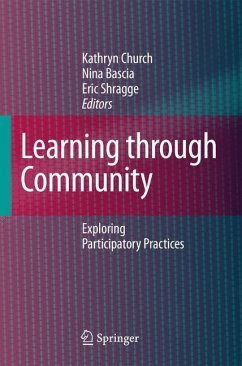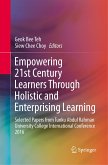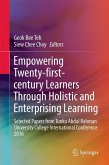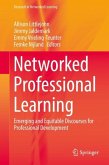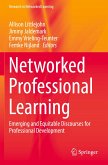The Turbulence of Learning to Publish As researchers, we learned about working together and collaborating across multiple dimensions of space, time and our own identities. ... We learned and we are still learning. We are learning as we write and revise this book. We learn as we begin to see this book through the eyes of others who have not lived through the process of discovery with us in the field. ... We learn as we go "back to work," ... to try to figure out how our learnings can make a difference. (Jackson, 2004, p. 289) It took 10 years to create this book. Of course, none of us intended to take so long. Like a lot of things that appear to be individual pathology, our tardiness was socially produced. The first defining relation was the collegial way in which Nina Bascia, Eric Shragge and I selected contributors for this volume. As co-editors, we sought cont- butions from academics who had produced case studies for the Toronto-based 1 research network called NALL: Network forNew Approaches to Lifelong Learning.
Hinweis: Dieser Artikel kann nur an eine deutsche Lieferadresse ausgeliefert werden.
Hinweis: Dieser Artikel kann nur an eine deutsche Lieferadresse ausgeliefert werden.
"It makes a timely and significant contribution to adult learning theory and practice. It does so at a time when adult learning is very much on the agenda of academics, policy makers and organizational leaders in both formal in informal sectors around the globe."
Nancy Jackson, OISE/UToronto, Canada
"For readers who have been searching for provocative analyses of "informal learning" that eschew the tepid and the technical, this book offers both powerful intellectual challenge and sobering stories. Here, struggle is a core theme and risky persistance the predominant strategy, as both authors and editors plunge into the contradictions of learning as participation in key spaces of social life: between formal institutions and movements for social change. The actual turbulences that are "informal learning" are theorized here as negotiating difficulty through simultaneous openings and closings in complicated networks of cultural action: practices of identifying, organizing, disturbing, aspiring, innovating, mobilizing, preserving and sustaining. While they stretch the debates and discourses of informal learning, the authors also resist these frames, calling forth new appreciations for the complexity of learning through community. These tales of learning at junctures of war, stigma, democratic action and hope will haunt you."
Tara Fenwick, Department of Educational Studies, The University of British Columbia, Canada
"For those interested in how complex it is to work collaboratively over a number of years on themes of common interest, the book's several introductory chapters are unusually transparent. This is a group of editors and authors who have refused to cover over the complexities of collective academic publishing by producing a seemingly grand narrative style introduction and a well-behaved list of chapter titles all standing up to be seen and accounted for. Students and other scholars will recognize, if not enjoy, the descriptionsof the collaborative process and the frustration and ultimate victory in getting this particular set of papers finally between two covers!
[While the groups they studied are marginal], the authors are most certainly not marginal. They are at the heart of understanding the learning dimensions of citizenship, social movements, survival, and celebration. Their work is fundamentally central to society today and they should seize this territory. To understand one's scholarly location in another way feels to me as accepting the distorted lens of the powerful who constantly project the views of the rick, the male, the straight and the white."
Bud Hall, Director of the Office of Community Based Research, University of Victoria, Canada
Nancy Jackson, OISE/UToronto, Canada
"For readers who have been searching for provocative analyses of "informal learning" that eschew the tepid and the technical, this book offers both powerful intellectual challenge and sobering stories. Here, struggle is a core theme and risky persistance the predominant strategy, as both authors and editors plunge into the contradictions of learning as participation in key spaces of social life: between formal institutions and movements for social change. The actual turbulences that are "informal learning" are theorized here as negotiating difficulty through simultaneous openings and closings in complicated networks of cultural action: practices of identifying, organizing, disturbing, aspiring, innovating, mobilizing, preserving and sustaining. While they stretch the debates and discourses of informal learning, the authors also resist these frames, calling forth new appreciations for the complexity of learning through community. These tales of learning at junctures of war, stigma, democratic action and hope will haunt you."
Tara Fenwick, Department of Educational Studies, The University of British Columbia, Canada
"For those interested in how complex it is to work collaboratively over a number of years on themes of common interest, the book's several introductory chapters are unusually transparent. This is a group of editors and authors who have refused to cover over the complexities of collective academic publishing by producing a seemingly grand narrative style introduction and a well-behaved list of chapter titles all standing up to be seen and accounted for. Students and other scholars will recognize, if not enjoy, the descriptionsof the collaborative process and the frustration and ultimate victory in getting this particular set of papers finally between two covers!
[While the groups they studied are marginal], the authors are most certainly not marginal. They are at the heart of understanding the learning dimensions of citizenship, social movements, survival, and celebration. Their work is fundamentally central to society today and they should seize this territory. To understand one's scholarly location in another way feels to me as accepting the distorted lens of the powerful who constantly project the views of the rick, the male, the straight and the white."
Bud Hall, Director of the Office of Community Based Research, University of Victoria, Canada

